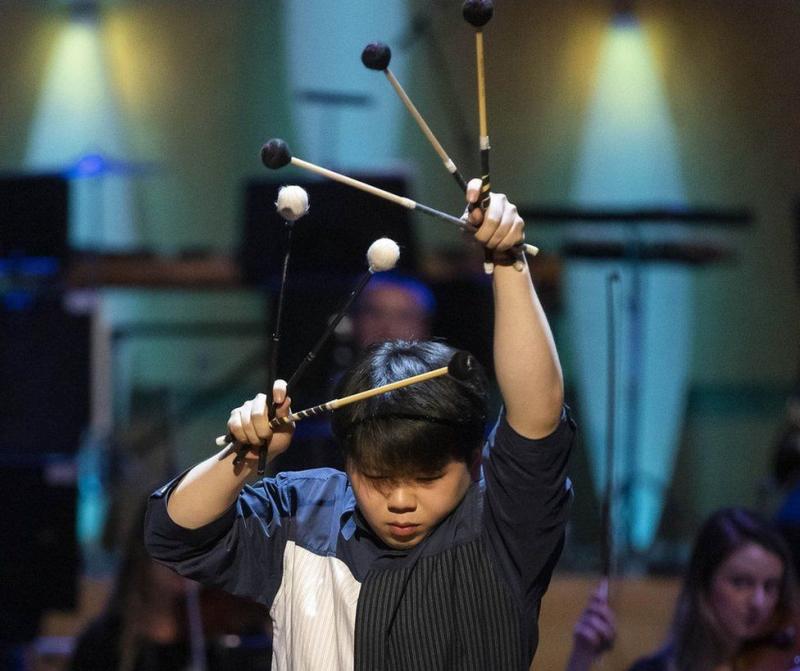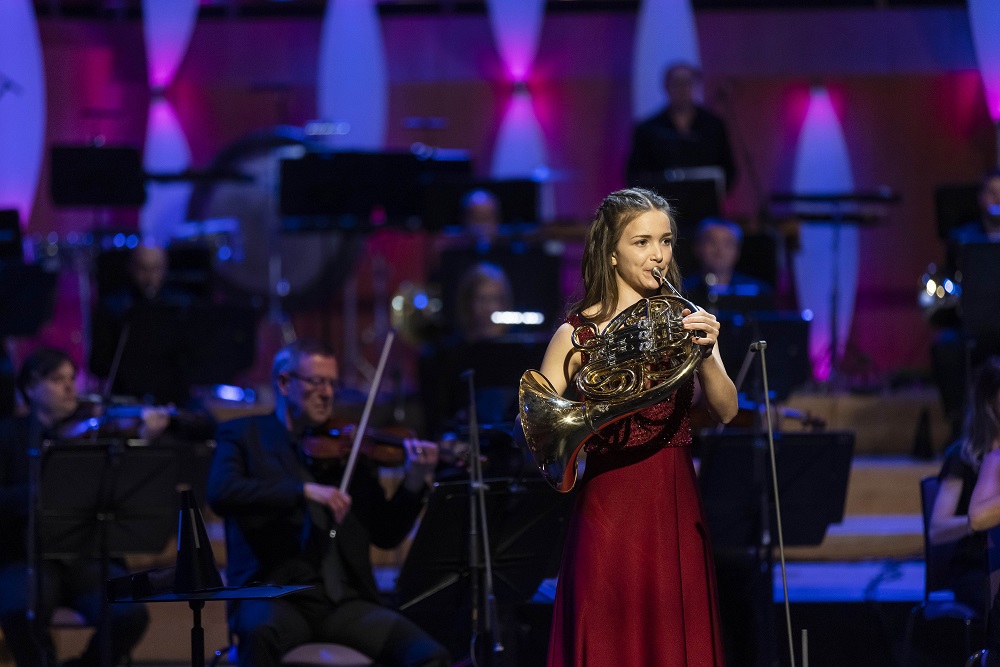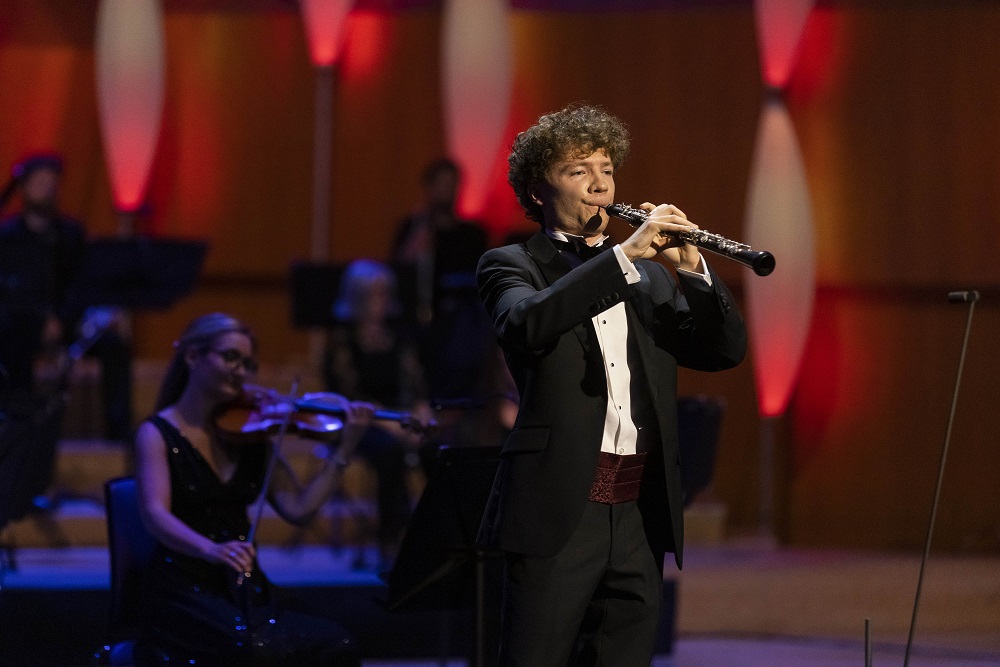BBC Young Musician 2020 Finale, BBC Four review - poise versus extraterrestrial ecstasy | reviews, news & interviews
BBC Young Musician 2020 Finale, BBC Four review - poise versus extraterrestrial ecstasy
BBC Young Musician 2020 Finale, BBC Four review - poise versus extraterrestrial ecstasy
After a year's wait, three finalists serve up first-rate professionalism - and something more

“You have to be careful you’re not judging the piece,” cautioned a pearl-necklaced Nicholas Daniel, great oboist and winner of the 1980 BBC Young Musician (of the Year, as it then was).
What a long time it took, though, to get to the musical heart of the matter: if ever there was a case of over-presentation, this was it. Not that any of the contributors – mostly young women, many of them practising musicians and/or composers, with a conspicuous absence of pale, male and stale – served up the irritant factor. 2016 finalist, saxophonist Jess Gillam, and presenter Josie d'Arby have eased into their roles. Anna Lapwood knows what she’s talking about, and the judges were to the point, too. Unquestionably it was nurturing conductor Mark Wigglesworth who had the most interesting things to say about his protégés, and what wonderful support they had from him and the BBC Philharmonic, the brass especially sounding glorious in an otherwise nearly empty Bridgewater Hall (I’m puzzled, though, why the BBC couldn't have waited a couple of weeks to admit a distanced spectatorship). 
Winner of the woodwind final, 19-year-old oboist Ewan Millar (pictured below), has the kind of meaty tone I prefer in the instrument (even if I can’t make it myself). His choice of work, though, was the weakest – Oscar Navarro’s Legacy Concerto, which after a beguiling start becomes a lurid film score with virtuoso soloistic writing attached. Millar carried all that off with unflappable perfection, while wind and brass went radiant full-pelt at their obvious material, but compared to the other works Navarro’s was way too verbose, and could have been whittled down by a third. 
Oddly, it was previous winner Lauren Zhang’s slightly restrained role in the delectable finale of Mozart’s earlier E flat Piano Concerto masterpiece, No. 9, with its embedded minuet, that made one realise how in comparison there had been no reservations at all about this year’s finalists. All must have prizes and distinguished careers, but as always the X-Factor was what clinched it. As for the prevailing virtue, Wigglesworth nailed it early on: this is “a celebration of the future, and we need that now more than ever”.
rating
Explore topics
Share this article
The future of Arts Journalism
You can stop theartsdesk.com closing!
We urgently need financing to survive. Our fundraising drive has thus far raised £49,000 but we need to reach £100,000 or we will be forced to close. Please contribute here: https://gofund.me/c3f6033d
And if you can forward this information to anyone who might assist, we’d be grateful.

Subscribe to theartsdesk.com
Thank you for continuing to read our work on theartsdesk.com. For unlimited access to every article in its entirety, including our archive of more than 15,000 pieces, we're asking for £5 per month or £40 per year. We feel it's a very good deal, and hope you do too.
To take a subscription now simply click here.
And if you're looking for that extra gift for a friend or family member, why not treat them to a theartsdesk.com gift subscription?

Add comment